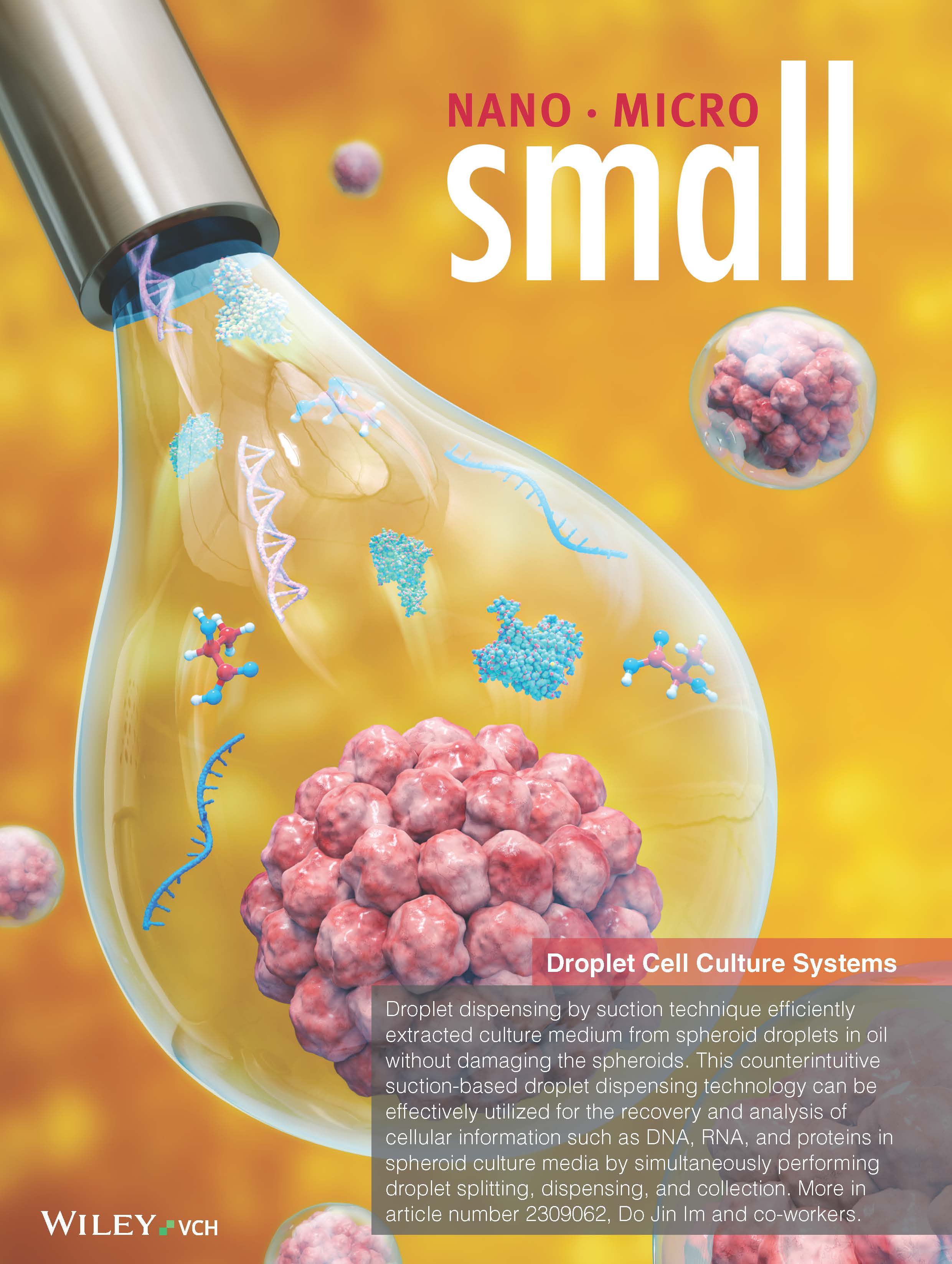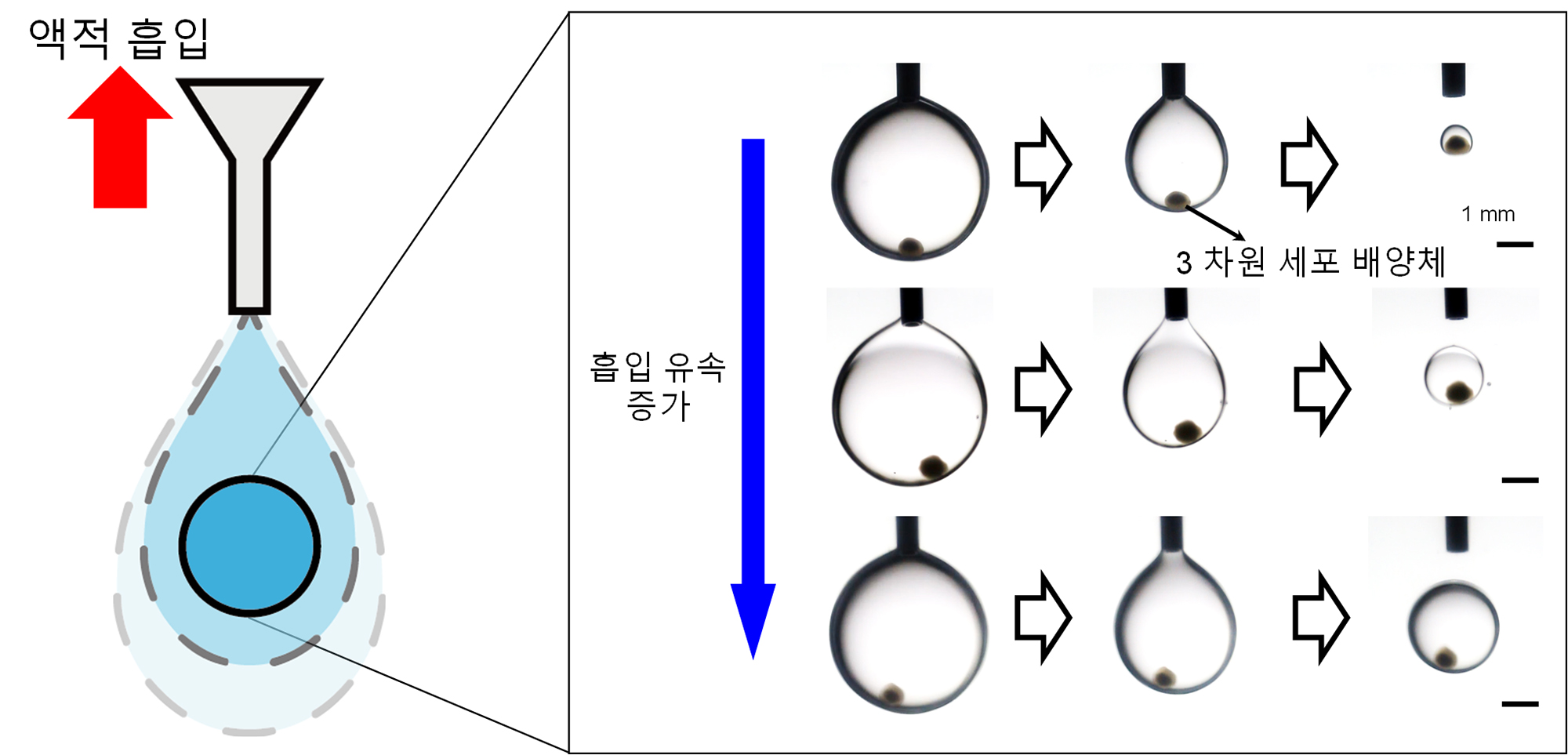연구/산학
PKNU Research 1000
| Im Do-Jin | Published as the cover paper of an international academic journal | |||
| 작성자 | 대외협력과 | 작성일 | 2024-06-14 |
| 조회수 | 24286 | ||
| Im Do-Jin | Published as the cover paper of an international academic journal | |||||
 |
대외협력과 |  |
2024-06-14 |  |
24286 |
Prof. Im Do-Jin's research team at PKNU published as the cover paper of an international academic journal
- published in the international academic journal <Small>... research on the development of innovative droplet dispensing by suction technique

The paper by the research team of professor Im Do-Jin (department of chemical engineering) at Pukyong National University was published as the cover paper of the international academic journal <Small> (IF 13.3).
<Small> is a renowned international academic journal in the field of nanotechnology published by John Wiley & Sons (Wiley).
The title of their paper featured on the cover is 'Simultaneous separating, splitting, collecting, and dispensing by droplet pinch-off for droplet cell culture'.
Professor Im Do-Jin's research team developed a novel droplet dispensing technology for the automated cultivation of organoids, which are next-generation artificial organ models, and presented this technology in the paper.
Organoids are artificially created organ models using stem cells, and are gaining attention in basic research for new drug development because they can closely mimic real organs.
However, there is a significant drawback in that the entire process of inducing stem cell differentiation to form and maintain organoids is extremely cumbersome. It is very challenging to efficiently replace most of the culture medium, and there is a risk of cell damage during this process.
To solve this problem, the research team used a new concept of liquid droplet (very small, round water droplet) dispensing technology that uses suction. As a result, more than 99% of the culture medium in the 3D cell culture droplet was efficiently replaced and recovered without damaging the cells.
Bae Seo-Jun, a phd. candidate and the first author of the paper, systematically analyzed over 2,000 experimental videos and discovered that the flow rate of suctioning droplets significantly affects the size of the dispensed droplets.
He mentioned, "I expect that the droplet dispensing technology, which enables the simultaneous distribution, splitting, and recovery of droplets, will be useful in developing automated platforms for organoid cultivation."
Professor Im Do-Jin's research team conducted this research with the support of the mid-career researcher Program from the National research foundation of Korea. <Pukyong Today>

△ A schematic diagram of the droplet dispensing process using suction and images depicting the variation in droplet size dispensed based on the suction flow rate.